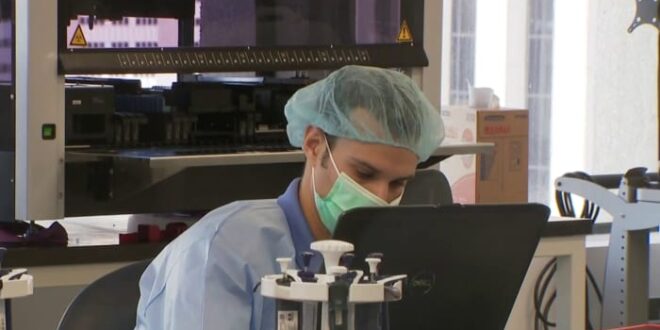It’s a serious issue: Houston Forensic Science Center experiencing challenges in their evidence handling process
The Houston Forensic Science Center (HFSC), a leading forensic laboratory, recently revealed that it is grappling with significant challenges in its evidence handling process. The center’s struggle to appropriately manage and store key pieces of evidence has raised concerns about the potential impact this may have on criminal cases in the region.
The complexity of evidence management
Managing evidence is a crucial task for any forensic laboratory, and the HFSC is no exception. With thousands of pieces of evidence being processed annually, the center must ensure that each item is accurately documented, properly preserved, securely stored, and easily retrievable when needed for legal proceedings.
However, in recent months, the HFSC has encountered various issues that have exposed weaknesses in its evidence management system. These challenges range from misplaced or mislabeled evidence to inadequate storage facilities and insufficient staff training. As a result, the integrity of some evidence has been compromised, potentially hindering the pursuit of justice.
Lost or mishandled evidence
One of the most concerning issues faced by the HFSC is the misplacement or mishandling of evidence. Over the past year, several instances of evidence being misplaced or incorrectly labeled have come to light. Such errors not only jeopardize the investigation process but also cast doubt upon the center’s ability to maintain the credibility of their findings.
Moreover, inadequate storage facilities have also contributed to the problem. Insufficient space and unsuitable conditions have led to potential degradation of evidence, rendering it less reliable or even inadmissible in court. The HFSC recognizes the urgent need for upgraded infrastructure to ensure proper preservation of evidence.
Tackling the challenges head-on
Recognizing the seriousness of the situation, the HFSC has taken immediate steps to address these challenges. The center has launched a comprehensive review of its evidence management protocols and is actively working on implementing improvements. This includes investing in advanced technology and software systems to enhance efficiency and accuracy in evidence tracking.
The HFSC has also prioritized staff training programs to ensure all personnel involved in evidence handling are well-equipped with the necessary skills and knowledge to carry out their responsibilities effectively. By fostering a culture of continuous learning and improvement, the center aims to prevent future mishandling and mitigate the risks associated with evidence mismanagement.
Implications for criminal cases and the judicial system
The ramifications of the HFSC’s evidence handling issues extend beyond the center itself. The potential impact on criminal cases in Houston and the surrounding areas cannot be ignored. Lawyers, judges, and law enforcement agencies rely on accurate and reliable evidence to ensure fair trials and just outcomes. Any compromises in the integrity of evidence may undermine the credibility of the entire justice system.
The HFSC’s commitment to addressing these challenges is crucial not only for restoring confidence in their operations but also for upholding the principles of justice. By implementing robust evidence management practices and making necessary infrastructure improvements, the HFSC aims to ensure that all criminal cases can proceed with the highest level of integrity and transparency.
In conclusion, the Houston Forensic Science Center’s struggles in evidence handling are a serious matter that must be urgently addressed. By acknowledging the issues, taking proactive measures, and fostering continuous improvement, the HFSC aims to uphold its mission of providing accurate and reliable forensic services to the criminal justice system.
 Mind Uncharted Explore. Discover. Learn.
Mind Uncharted Explore. Discover. Learn.




